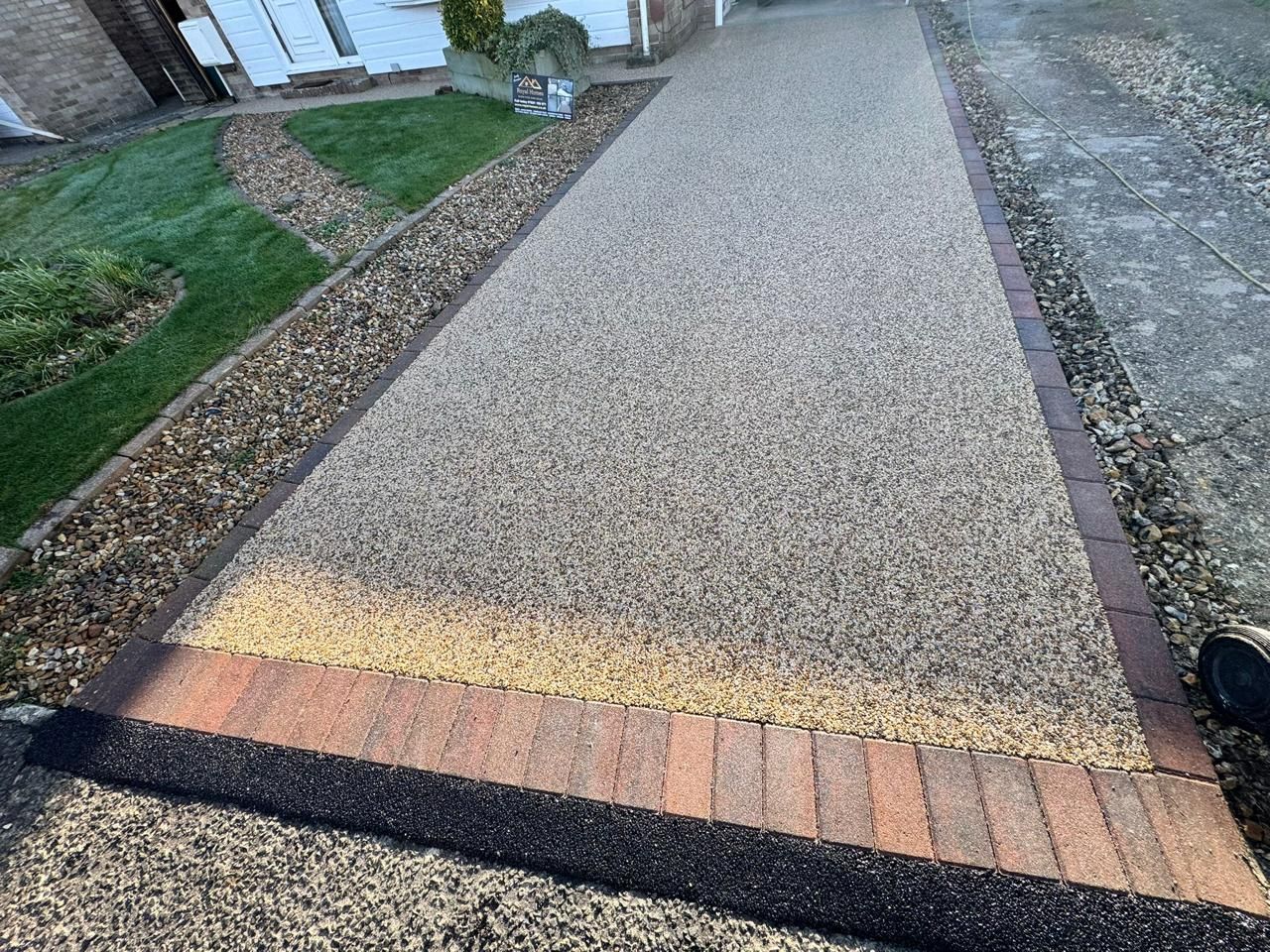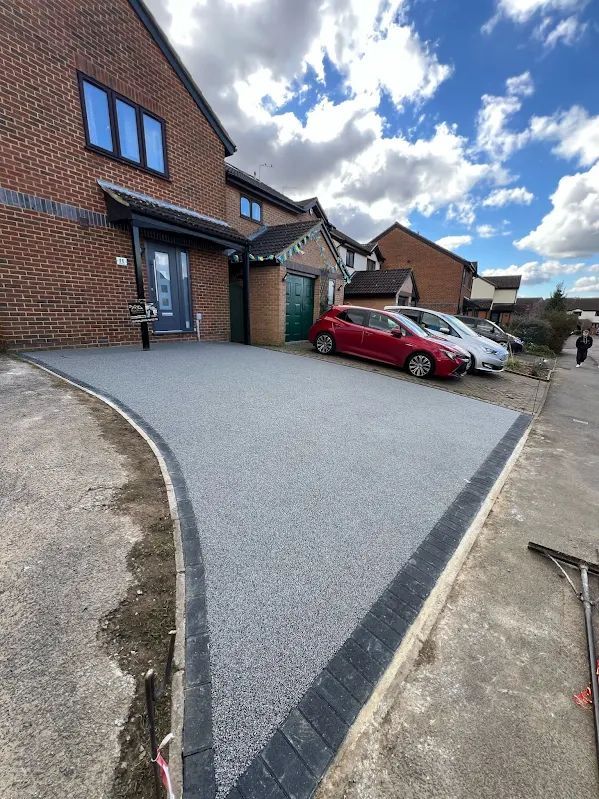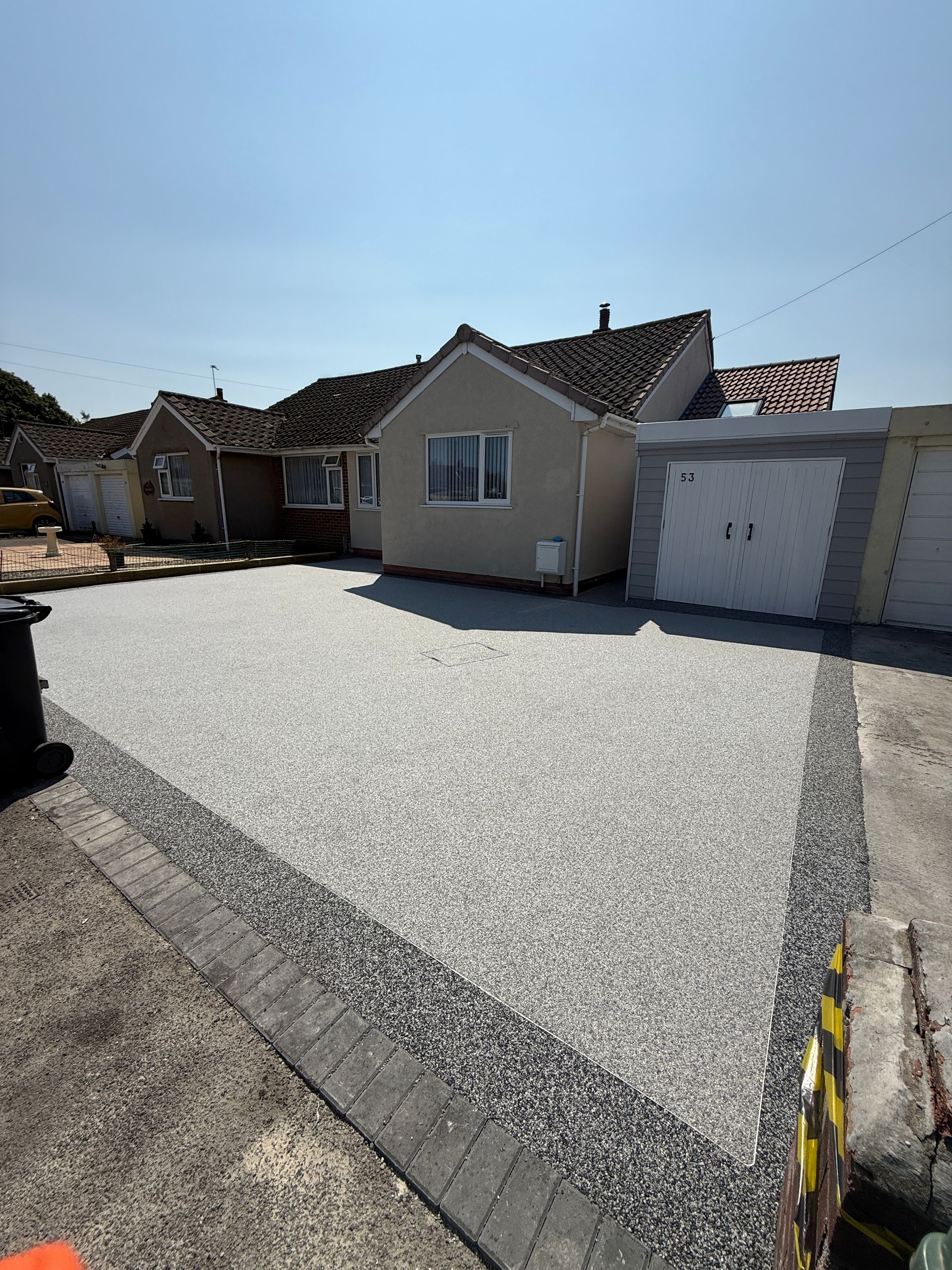Resin vs Concrete: Which Material Should You Choose For Your Driveway?
When it comes to choosing the best material for your driveway, you have several options. Homeowners frequently pick between resin and concrete. Both materials have advantages and disadvantages. Understanding the differences between resin and concrete can help you make an informed decision when it comes to selecting the best driveway material for your needs. Today, we'll compare resin and concrete to determine which is best for you!
Which Material Is Longer Lasting?
Concrete driveways are well-known for their
durability and
long life. They are unlikely to crack and can withstand
severe vehicle use. However, concrete can
crack over time owing to
weather conditions or
ground movement. Resin driveways, on the other hand, are incredibly
durable and
resistant to wear and strain. They are
flexible and
less prone to cracking, making them appropriate for areas with
unstable terrain or
harsh weather.
What Looks Better?
Concrete driveways offer a
classic,
timeless appeal. They come in a range of
finishes, including
brushed,
printed, and
exposed aggregate, allowing you to choose a style that
matches your home. However, they can
fade over time and may require frequent
sealing or
staining to maintain its appearance. Resin driveways, on the other hand, have a
sleek and
modern appearance. Resin driveways can be personalised to reflect your
aesthetic preferences, increasing the overall
curb appeal of your house, and are available in a variety of
hues and
styles.
Installation Discrepancies
Concrete driveways are typically
installed by a professional. The technique includes
excavating the area,
pouring and
levelling the concrete, and allowing it to
cure. This could take
many days depending on the
size of the driveway. Resin driveways need
less time and
effort to install. The resin is poured and thoroughly
disseminated onto a
prepared substrate, resulting in a
faultless surface. Because
resin driveways dry far quicker than concrete, you can use your driveway much
sooner.
Maintenance Requirements
Concrete driveways must be
maintained on a regular basis in order to retain their
appearance and
prevent cracking. This entails
sealing the surface on a regular basis to protect it from
stains,
moisture, and
UV damage. Concrete driveways may also need to be maintained if
cracks or
potholes appear. Resin driveways require
minimal maintenance. They do not require
sealing and are
stain-resistant, making them simple to
clean and
maintain.
Regular sweeping and
power washing are usually sufficient to keep resin driveways in
great nick.
The Difference In Price
The
cost of a driveway might vary depending on factors such as
size,
location, and
ease of installation. In most cases,
concrete driveways are less expensive to install than
resin driveways. Resin driveways, however, offer
long-term cost savings because of their
durability and
low maintenance requirements. While a resin driveway may need a
higher investment to start, it can provide a
superior return over time, you would likely save thousands on maintenance and repairs.
Overall, here are the benefits and downsides of both materials.
Please see the benefits of each material below:
| Concrete Driveways | Resin Driveways |
|---|---|
| Durable | Durable and resistant to daily usage |
| Classic,timeless appearance | Sleek,modern appearance |
| Different finishes available (printed, brushed, etc.) | Dozens of colours and bespoke blends available |
| Needs periodic sealing or staining | No sealing required |
| Regular maintenance required (sealing and occasional repairs) | Low maintenance (sweeping and power washing) |
| Initial cost is generally cheaper | Long-term cost savings due to durability and low maintenance |
Please see the drawbacks of each material below:
| Downsides of Concrete Driveways | Downsides of Resin Driveways |
|---|---|
| Vulnerable to cracks or chipps over time | May not be suitable for unusually heavy loads |
| May require periodic sealing or staining | May not be suitable for unusually hot climates |
| Can fade over time, requires restoration | May be more expensive to install compared to concrete |
| Cracks or potholes may develop and require attention | Installation may need professional expertise |
| More vulnerable to oil stains | Not suitable for extremely cold climates |
To summarise,
both resin and concrete driveways have significant advantages. Concrete driveways are
robust,
more affordable and have a
classic aesthetic, whereas resin driveways are
versatile,
very customisable,
low-maintenance,
durable,
permeable,
UV resistant, and so on. Consider your
budget, desired
aesthetic, and the specific
needs of your home when deciding between resin and concrete. Finally, the best driveway material is chosen by both your
personal preferences and the
unique needs of your property. If we had to pick a winner, you will notice that resin is generally a better choice. Although resin is more expensive at first, it gives
enormous returns over time, and their design makes it worth it!




